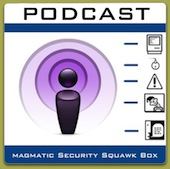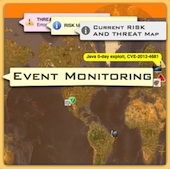Ransomeware, Scareware and Trojans are a Real Threat
 Monday, March 15, 2010 at 09:51PM
Monday, March 15, 2010 at 09:51PM It is very clear that as the user and developer base of Mac OSX grows so will the value of exploited Macintosh computers to cyber criminal organizations. The Mac is an intriguing target since it is truely a Unix box. The iPhone's and iPad's popularity has only increased interest in exploiting the Macintosh platform.
One of the down sides of Apple's advertising campaign is that users fall victim to a false sense of security. They usually have weak password, no backups, opt out of firewall and virus protection software. Cyber criminals exploited jail broken iPhones after a proof of concept exploit was altered into a trojan that stole information, locked the users phone and re-directed users of a particular bank to a phishing site to steal account information.
Dancho Danchev has an excellent article on ZDNet blog that is a must read. POC of various Mac SmS Ransomeware have been posted to various forums in Russian and Chinese. (Several 0day exploits have been posted to Zero Day Initiative that have also appeared on Chinese forums. With the DOD moving many client systems to MacOS the interest in MacOS by foreign governments will only increase.) It is only a matter of time before these POC are re-engineer into criminalizeware. So, now is the time to start thinking about security within MacOS. Install anti-virus software, advance firewall that does egress and ingress filtering especially if you are not familiar with ipfw, install snort, auditing tools and only open files from trusted sources.
Ransomeware, scareware and trojans are a real threat, Mac users and administrators need to get used to it.







